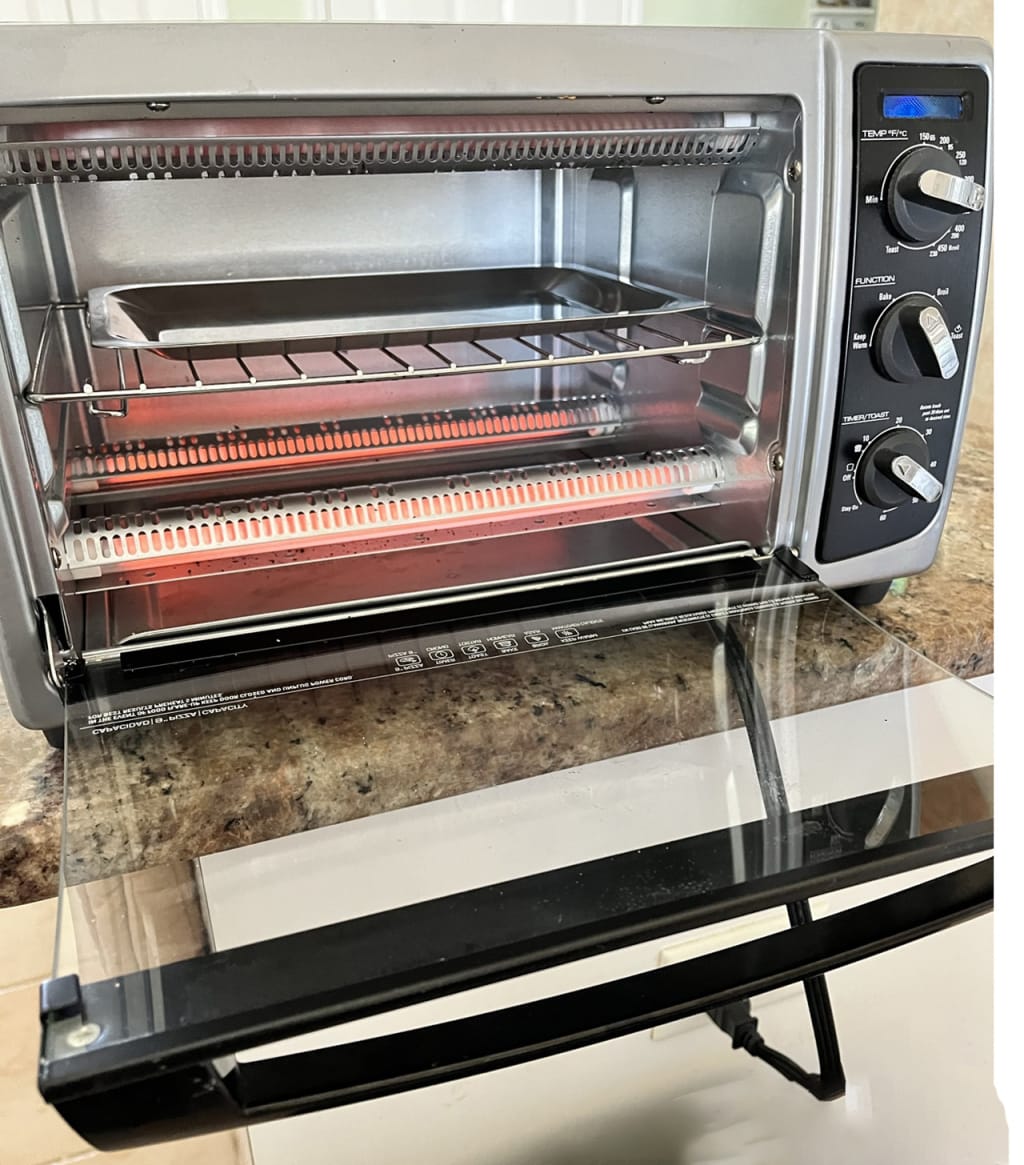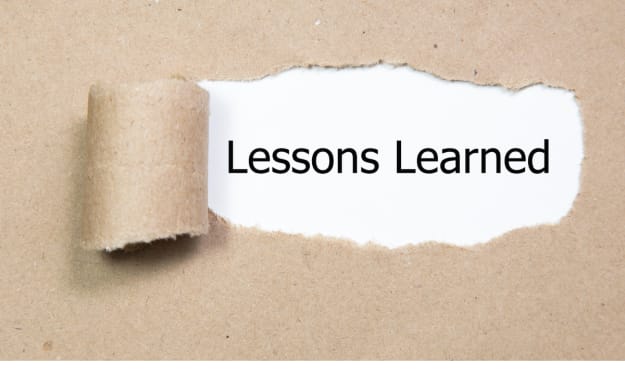The Next Hundred Years
Can You Imagine?

During my physical examination, my doctor and I spoke of my health and the tests he wanted to perform to ensure I stay healthy. As his nurse began laying various instruments on the counter, I joked with the doctor about their new appearances, stating how I remembered the former antiquated equipment. Our conversation drifted to the various illnesses I had and how I coped with them.
I mentioned my arthritis pain was under control, thanks to an over-the-counter pain relief pill that works wonders. He asked about a few other conditions with which I’d been diagnosed in the past and that’s when heredity took control of the conversation.
Casually, I mentioned that “way back then” there were no special tests or tools with which to accurately diagnose a patient. Unless the symptoms were obvious, like a broken bone, the diagnosis, unfortunately, and all too often became guesswork. As time passed and the medical field progressed, things became much easier and more precise.
My doctor stated that practicing medicine in today’s day and age, suited him fine since all the modern equipment was available to him and yet, he even looked forward to the future when things would become even simpler.
That statement really got me thinking.
I was born in 1947. What major inventions appeared in the earlier centuries that made our lives better and what might our children or grandchildren look forward to in the future?
Let’s first look at the compass. According to what I’ve found on the internet, the first compass was invented by the Chinese around the year 206 BC. While it was a crude looking device its original intent was the use in astronomy and fortune-telling. It wasn’t until somewhere around the 11th century, that the China military began using it for navigational purposes. Here we are in the 21st century and look what we have now! Global Positioning Systems. Not only can these awesome instruments help you find your way - but they can help others find you should you lose your way and get lost. And let’s not forget about the microchips that are being used for pets. If they haven’t already begun, next, they’ll be implanting these in humans. That possibility is already in discussion.
What’s next? Ear implants that are tiny radios that can be controlled by twitching your nose or blinking your eyes? Oh, wait a minute! They have devices like these and are used most often by the world’s governments. You may not “twitch” your nose but if you tap your ear, you can activate this little device. Oh, and let’s not forgot the Cochlear hearing aid implants. These “hearing aids” are devices that are surgically implanted under the skin and transmit signals to the auditory nerves to produce sound to the ear. Sure beats the old megaphone speaker-looking hand-held device. However, I’ll still settle, for now, the hearing aids that I use daily but remove at night. They work fine and my hearing is so much better than not having them at all.
Many of us take toast for granted. You just put the bread in the machine and in a few minutes, up pops toast! I remember when I was a little child. My mom told me of a time when her mom would make toast by placing bread on the top of the coal stove she cooked on. Although the first electric toaster was invented in 1893, it wasn’t until around 1919, that Charles Strite created a device that would toast both sides of the bread simultaneously. While I have a toaster that does that, I enjoy using my toaster-oven that does so much more: toasts, bakes, and broils.
Here is a bit of trivia for those who felt the need to know. Whiskey was first invented in Scotland in 1494! And to think, approximately 450 years later, the black-market booze littered alleyways and speakeasies during the Prohibition era which took place in the 1920s. What did we do before 1494? There was a combination of rice, honey, and grapes that those who cared to imbibe, could do so by drinking this mixture. We’ve come a long way from the rice mixture and prohibition and now, what will we do in the future? Take a liquor pill? Hmm. I don’t quite think that would fly too well. I think something would be lost as far as taste is concerned. And how about those who are trying to go on the wagon? Would they need to wear a “whiskey patch” like those now trying to quite cigarettes? Makes you wonder.
One thing I know we can all be thankful for is the next invention. I can’t even imagine, nor do I want to imagine using something like a hospital bedpan each and every time nature calls. And yet, I can imagine the skepticism and awe that must have been seen in 1500 when the first flushable toilet was introduced to the public. “You want me to sit on that? And then, do what?” Since then, we’ve gone from a hole in the floor (oh, yeah, we still have that), to a pull chain to a mounted lever and finally, in many commercial restrooms, an infrared motion detector. We even have toilets equipped with bidets. What will they think of next? Toilets with remote controls that will wash - and dry? Oh, wait a minute. I think those are in the preliminary stages in Asia.
While we take for granted many of the items we use daily, I can imagine some of the criticism dished out by skeptics. “What on earth made you think of such a thing?” “What the heck will you use that for?” Not to mention the all-time dumbfounded, wide-eyed silent stare.
Can you, for just a minute, place yourself back in time to the year 1650 when Otto von Guericke invented the air pump? I find myself asking, “What on earth would he use it for?” The first balloon wasn’t even invented until 1824, so again, what was the need, at that time, for an air pump? I guess we can certainly say that Mr. von Guericke was not full of hot air, now, was he!
We all know that in the 18th century, Ben Franklin invented the lightning rod, but that same century brought us a number of other significant items.
Bartolomeo Cristofori invented the piano. Makes you wonder what Beethoven would have been if not for good old Bart!
All I can say about the 19th century is Wow! So many remarkable things were invented and each one certainly improved our lives in some capacity.
Singer invented the sewing machine and four years later invented the motor for it. Pasteur invented pasteurization while Alfred Nobel invented dynamite. Speaking of the sewing machine, it should and will lead us to Rayon, invented by Georges Audermars - but the kicker of these inventions is what happened in 1872. In that year, A. M Ward issued the very first ever - MAIL ORDER CATALOG! How about that for making life easier in the “good old days?”
Things got even busier in the 20th century. There were about 250 notable inventions that aided us in many aspects of our daily lives, whether fighting wars, fighting crime, fighting germs, or fighting hunger. We saw things like the tommy-gun in 1920, the lie detector in 1921, the Band-Aid in 1920 and Corn Flakes in 1906.
There are so many awesome inventions, it’s really difficult to pick out only one that would be my personal favorite but if I had no choice at this particular time, it might be the air conditioner, invented in 1902 by Willis Carrier. Living in Florida, we use our a/c unit ten months of each year. It surely does make my life easier and happier.
And speaking of making life easier, the first robot was built in 1921 while in 1922, Sir Frederick Grand Banting invented insulin. Alexander Fleming discovered penicillin in 1928 and Konrad Zuse’s computer was the first computer to use a software program - and that took place in 1941 - fourteen years before Bill Gates was born!
Thinking back on computers, back in 1958, you had the capability of having one computer “speak” to another. It was in that year the modem was invented. It only took ten more years for computer geeks to realize the importance of the little electronic mice that we now find ourselves lost without. We can thank Douglas Engelbart for that invention.
It took a few years for Bill Gates to emerge from his diaper era but when he did, it didn’t take him long to show the world what computer geeks were really like! At the tender age of twenty-six, he invented MS-DOS - the computer operating system that started the wheels turning for the betterment of computer programs. Finally realizing the magnitude of this great system, Gates went on and in 1985 invented Windows for Computers - an operating system that is now used worldwide.
Speaking of things that are universal, in 1990, we found ourselves able to use our computers for in-depth research, learn about and communicate with other countries, order items online - and all with the help of the Internet protocol (http) and the web language (HTML) that provides us with the World Wide Web that was invented by Tim Berners-Lee.
We are now in the 21st century. One can only imagine what wonderful things might be invented during the next hundred years.
Today, we drive compact cars, SUVs, motor homes and other similar transportation devices. As we find roadways becoming increasingly congested with traffic, somewhere along the way, we may see ourselves piloting hovercrafts to get to work, school and even to do our weekly grocery shopping.
While we enjoy our morning coffee, I, for one, would rather stumble into the kitchen after a good night’s sleep and find my coffee waiting rather than to have to make it myself and then wait for it to brew. In the next hundred years, we may have something that would allow us to press only a button that would, within seconds, produce through a device on the counter, a steaming hot cup of coffee. Yes, I know we can buy programmable coffee makers now, but how would you like to have a counter device like this that would do the same thing with food? Can you imagine pressing a button for, let’s say, a spaghetti dinner and within seconds, have a small door on the device open and slide out a great tasting meal? Now, that’s service!
We have so many great items are our fingertips: computers, wireless phones, cellular phones, inkjet printers, fax machines, refrigerators, cooktops - you name it, we have it. All these things have made our lives richer and better. The past inventions have made us more productive and gave us a much easier way to communicate with others.
Looking around at all these marvelous inventions, I can’t help but worry about our future generations. My grandchildren are growing up with computers, X-boxes, cell phones, and all the conveniences of a comfortable and entertaining life.
Will today’s inventions make them think they have it all and cause them to become lazy?
Or will they realize something they don’t have and yet, sorely need?
Will that need force them to use their imaginations and invent something that we haven’t yet dreamed of?
What will it be that they imagine that will make life for their future generations, better?
At my age, it’s obvious I might not be around to find out, but wouldn’t it be great to have some kind of insight as to what life would be like and what inventions would be made to better those lives - in the next hundred years.
About the Creator
Margaret Brennan
I am a 77-year old grandmother who loves to write, fish, and grab my camera to capture the beautiful scenery I see around me.
My husband and I found our paradise in Punta Gorda Florida where the weather always keeps us guessing.
Enjoyed the story? Support the Creator.
Subscribe for free to receive all their stories in your feed. You could also pledge your support or give them a one-off tip, letting them know you appreciate their work.
Reader insights
Outstanding
Excellent work. Looking forward to reading more!
Top insights
Easy to read and follow
Well-structured & engaging content
Eye opening
Niche topic & fresh perspectives
Masterful proofreading
Zero grammar & spelling mistakes
On-point and relevant
Writing reflected the title & theme






Comments (1)
what imagination and insight. ever thought of inventing something?